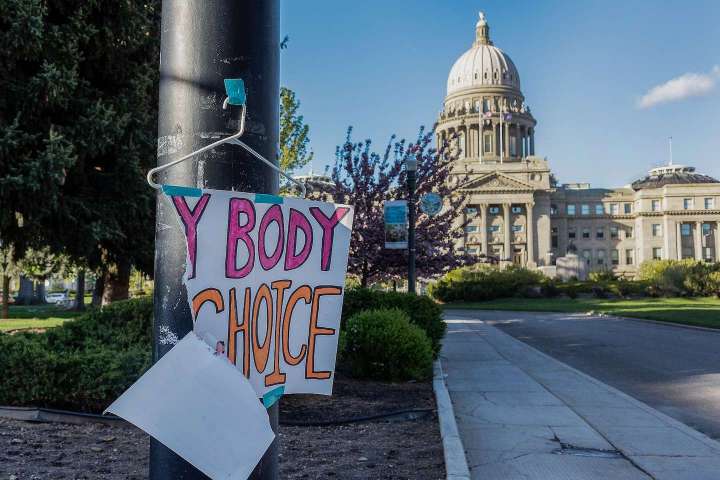The Idaho Supreme Court said late Friday that the state’s strict antiabortion laws can take effect while it reviews legal challenges against the restrictions. The near-total ban on abortions is scheduled to kick in Aug. 25.
Idaho’s top court allows strict abortion ban to kick in

The decision was made in response to lawsuits from a Planned Parenthood chapter and a local doctor challenging laws such as Idaho’s near-total abortion trigger ban, which was designed to become enforceable shortly after the U.S. Supreme Court overturned Roe v. Wade in June. The petitioners had asked the judiciary to suspend enforcement of the abortion restrictions until it reached a final decision.
But Idaho’s highest court denied the requests in a split decision, saying that the petitioners had failed to show that they were likely to prevail in overturning the state’s antiabortion laws.
Idaho’s abortion restrictions have exceptions for rape, incest and when the life of the pregnant person is at risk. Abortion rights supporters had previously argued in court that the medical exceptions were written so vaguely that they were impossible to follow, the Associated Press reported.
The court also noted that the petitioners had raised “serious issues” about the “lack of clarity” regarding Idaho’s medical exceptions, particularly relating to treatment for conditions such as ectopic pregnancies — when a fetus grows outside the uterus, making the pregnancy unviable — and preeclampsia, a pregnancy complication associated with dangerously high blood pressure.
The Planned Parenthood charter that sued to block the laws said the court’s ruling would “force health care professionals to deny Idahoans vital, time-sensitive care, and punish the state’s abortion care providers.” But the nonprofit said it would continue to challenge the abortion ban on its merits; the state Supreme Court has scheduled hearings for late September.
The Idaho Republican Party, which calls abortion “murder from the moment of fertilization” on its platform, didn’t immediately issue a statement in response to the ruling. Its Twitter account retweeted and liked a local reporter’s update on the court’s decision.
The Biden administration is separately suing to block Idaho’s near-total abortion ban from taking effect on Aug. 25, saying it violates a federal requirement to provide medical care when a pregnant person’s health is at risk. That lawsuit is scheduled to be heard on Aug. 22. The U.S. Justice Department argues that the Idaho law conflicts with the Emergency Medical Treatment and Labor Act, a federal law that says patients seeking emergency medical care at a hospital accepting Medicare funds are entitled to any lifesaving treatment.
Idaho Gov. Brad Little (R) and Attorney General Lawrence G. Wasden (R) disputed the Justice Department’s characterization of state laws, saying that federal statutes allowed the ban and describing the Biden administration’s suit as federal overreach.
Many physicians have argued that the latest wave of antiabortion laws attempts to create a binary on what is a continuous spectrum of increasing risk. Pregnancy can be a huge stress on a patient’s body, potentially turning existing health problems into life-threatening ones.
The suit was the first filed by the Biden administration against abortion restrictions nationwide after Roe was overturned. U.S. Attorney General Merrick Garland argued that by banning abortions, even to women in medical emergencies, Idaho law violates federal law. Federal law prevails when it conflicts with state laws, the Constitution says.
Associate Attorney General Vanita Gupta, who heads the Department of Justice’s new reproductive rights task force, said the Idaho law unfairly puts the legal burden on medical professionals to prove they hadn’t violated it. “They must either withhold stabilizing treatment … or risk felony prosecution and license revocation,” Gupta said.
Perry Stein and Devlin Barrett contributed to this report.






